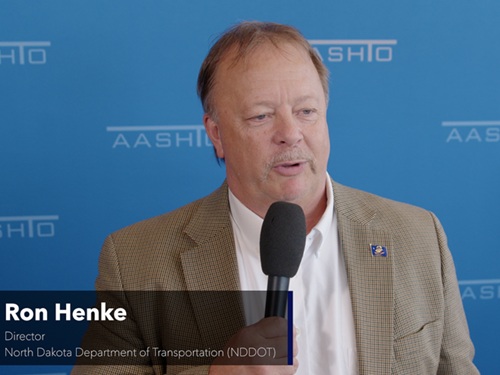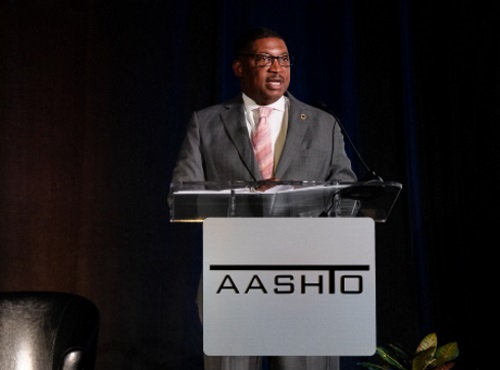Dr. Shawn Wilson (seen above) – secretary of the Louisiana Department of Transportation and Development – remains committed to integrating diversity, equity, and inclusion or DEI principles into the transportation sector and recently urged fellow state department of transportation leaders to stay committed to that vision as well.
[Above photo by AASHTO]
As reflected in achievements made under his tenure as the American Association of State Highway and Transportation Officials 2021-2022 president, Wilson called upon state DOTs to use the “synergy of the moment” to continue incorporating DEI principles into their organizations.

“State DOTs—like many other organizations—have experienced a lot of change over the last few years,” he explained in his final speech as AASHTO’s president during the group’s 2022 Annual Meeting in Orlando.
“From a global pandemic to the effects of climate change and a more robust and necessary national discussion on diversity, equity, and inclusion, state DOTs have responded to these issues in their communities,” he said.
“If our industry commits to creating pathways to equity, we can create a workforce that is truly representative of the people we serve as we deliver a modern transportation system that provides opportunity to all, regardless of race and gender, income or ability,” Wilson pointed out.
He added that state DOT leaders and transportation planners must “look through the lens of equity” as well as they plan, design, and invest in the infrastructure needs of communities across the country.
“AASHTO is undoubtedly a leader in the transportation space, and we should not and do not operate in a vacuum, but we should support partnerships with other organizations and embrace the richness of perspectives,” Wilson stressed.

He pointed out that states and local agencies must consider how to mitigate the barriers of the past to promote communities that are healthier, more inclusive, fair, and empowering.
“This will enrich our quality of work as we minimize biases, attract new talent to the workforce, generate innovate ideas, and provide new opportunities to collaborate,” Wilson said.
“Broadening our base on common issues will have a far greater impact on public priorities, and expand the conversation on issues that matter most,” he added. “While we cannot erase the past, we have the power to design a more equitable future. Let’s act on it as well.”
 Nation
Nation
North Dakota DOT Profiled in State DOT Update
July 3, 2025 Nation
Nation

